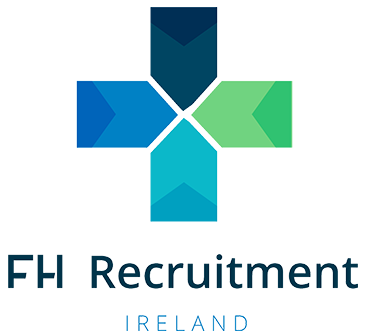This company has no active jobs
0 Review
Rate This Company ( No reviews yet )
About Us
You’ll Never Guess This Standardized Mental Health Assessment’s Tricks

Standardized Mental Health Assessment: Objectives, Tools, and Implementation
Mental health assessment plays a critical role in diagnosing and treating mental health conditions. The standardization of this process guarantees consistency, reliability, and credibility across numerous platforms, eventually assisting in much better patient outcomes. This article goes over the objectives of standardized mental health assessments, typically used tools, and their implementation in both clinical and research settings.
Goals of Standardized Mental Health Assessments
Standardized mental health assessments serve numerous crucial objectives:
-
Accuracy in Diagnosis:
- These assessments provide structured formats that help clinicians properly identify mental health concerns based on established requirements.
-
Consistency Across Contexts:
- By utilizing the same tools throughout various settings and populations, standardized assessments enable a consistent approach to mental health evaluation.
-
Enhancing Communication:
- Standardized assessments foster much better communication between healthcare specialists, patients, and families by supplying a clear understanding of patients’ conditions.
-
Facilitating Research:
- Standardized tools are important in research to guarantee data comparability, assisting in the advancement of effective treatment protocols.
-
Determining Outcomes:
- They make it possible for longitudinal research studies by offering standard and follow-up information on client development and treatment efficiency.
Common Tools Used in Standardized Mental Health Assessment
Table 1: Overview of Common Tools for Mental Health Assessment
| Tool Name | Description | Typical Use Cases |
|---|---|---|
| Beck Depression Inventory (BDI) | A 21-item self-report questionnaire determining the severity of depression. | Depression diagnosis, treatment monitoring. |
| Hamilton Anxiety Rating Scale (HAM-A) | Measures the seriousness of anxiety signs. | Clinical assessment of anxiety disorders. |
| Montreal Cognitive Assessment (MoCA) | Screens for cognitive disability and dementia. | Assessing cognitive decline in numerous populations. |
| Mini International Neuropsychiatric Interview (MINI) | Structured diagnostic interview for several psychiatric disorders. | Quick assessment for psychiatric medical diagnoses. |
| Client Health Questionnaire (PHQ-9) | Nine-item questionnaire for depression screening. | Primary care settings and general health assessments. |
These tools differ in their applications and are customized to specific needs, consisting of self-assessment, clinician assessment, and structured interviews.
Execution in Clinical Settings
1. Training and Education
When carrying out standardized mental health assessments, it is vital for clinicians to get training in the tools to guarantee accurate information collection and interpretation.
2. Combination into Practice
Standardized assessments need to be perfectly integrated into the client intake process, with appropriate time allocated for administration.
3. Adjusting to Individual Needs
While standardized assessments are consistent, clinicians must customize the usage of these tools based on specific patient needs, cultural factors to consider, and specific clinical circumstances.
4. Data Storage and Usage
Information collected from assessments need to be stored securely while enabling easy gain access to for longitudinal research studies or follow-up assessments.
5. Continuous Evaluation and Feedback
Incorporating feedback systems for both patients and clinicians improves the assessment process. Regular reviews of the assessment tools utilized can result in much better outcomes and improved tool efficiency.
The Role of Technology in Standardized Assessments
Advancements in innovation have transformed standardized mental health assessments, making them more available and effective. Digital tools and mobile applications are progressively made use of, enabling for easier patient engagement and data collection. For example, mobile apps that host self-report questionnaires yield valuable information and can trigger immediate mental health support if required.
Benefits of Technological Integration
- Real-Time Data: Digital platforms allow for instant collection and analysis of assessment data, helping with prompt interventions.
- Increased Reach: Technology enables assessments to reach populations that traditionally do not have access to mental health services, improving fair care.
- User-Friendly Tools: Interactive apps make self-assessment more engaging and can provide immediate feedback to users.
Frequently Asked Questions About Standardized Mental Health Assessments
Q1: What is a standardized mental health assessment?
A standardized mental health assessment is a structured tool utilized to assess a person’s mental health status regularly throughout different populations and settings.
Q2: Why is standardization crucial in mental health assessments?
Standardization makes sure consistency, reliability, and credibility in detecting conditions, helping with reliable communication amongst healthcare service providers and aiding in research.
Q3: Can standardized assessments be adapted for different populations?
Yes, numerous standardized tools can be culturally pertinent and customized to accommodate the requirements and contexts of various populations.
Q4: How typically should standardized mental health assessments be performed?
The frequency depends on individual requirements, clinical settings, and the specific conditions explained; nevertheless, it ought to be constant or periodic adequate to track client progress.
Q5: Are there any risks associated with standardized assessments?
Possible dangers include misconception of outcomes and over-reliance on tools without considering a comprehensive understanding of the patient’s special circumstances.
Standardized mental health assessments are vital for providing reliable, valid, and constant diagnostic info. As the demand for mental health services grows, the value of making use of these assessments efficiently is critical. By leveraging well-structured tools, clinicians can enhance client care and contribute to a growing body of mental health research that notifies best practices. In era of technological advancements, integrating digital solutions further reinforces these assessments, offering the capability to customize care to individual requirements. As the field continues to develop, keeping a concentrate on standardized assessments will stay important in improving mental health outcomes worldwide.



